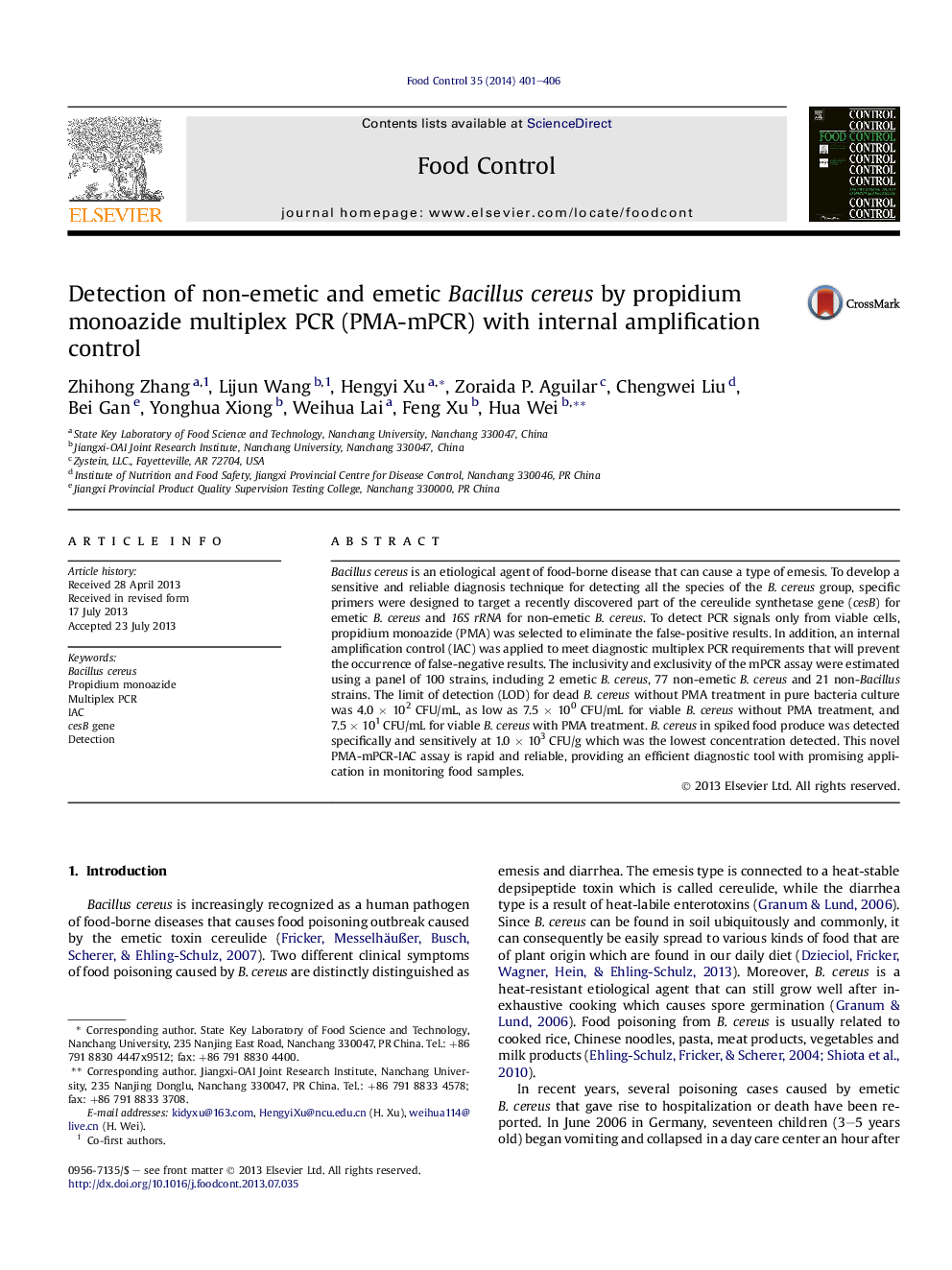| Article ID | Journal | Published Year | Pages | File Type |
|---|---|---|---|---|
| 6392676 | Food Control | 2014 | 6 Pages |
Abstract
Bacillus cereus is an etiological agent of food-borne disease that can cause a type of emesis. To develop a sensitive and reliable diagnosis technique for detecting all the species of the B. cereus group, specific primers were designed to target a recently discovered part of the cereulide synthetase gene (cesB) for emetic B. cereus and 16S rRNA for non-emetic B. cereus. To detect PCR signals only from viable cells, propidium monoazide (PMA) was selected to eliminate the false-positive results. In addition, an internal amplification control (IAC) was applied to meet diagnostic multiplex PCR requirements that will prevent the occurrence of false-negative results. The inclusivity and exclusivity of the mPCR assay were estimated using a panel of 100 strains, including 2 emetic B. cereus, 77 non-emetic B. cereus and 21 non-Bacillus strains. The limit of detection (LOD) for dead B. cereus without PMA treatment in pure bacteria culture was 4.0 Ã 102 CFU/mL, as low as 7.5 Ã 100 CFU/mL for viable B. cereus without PMA treatment, and 7.5 Ã 101 CFU/mL for viable B. cereus with PMA treatment. B. cereus in spiked food produce was detected specifically and sensitively at 1.0 Ã 103 CFU/g which was the lowest concentration detected. This novel PMA-mPCR-IAC assay is rapid and reliable, providing an efficient diagnostic tool with promising application in monitoring food samples.
Related Topics
Life Sciences
Agricultural and Biological Sciences
Food Science
Authors
Zhihong Zhang, Lijun Wang, Hengyi Xu, Zoraida P. Aguilar, Chengwei Liu, Bei Gan, Yonghua Xiong, Weihua Lai, Feng Xu, Hua Wei,
